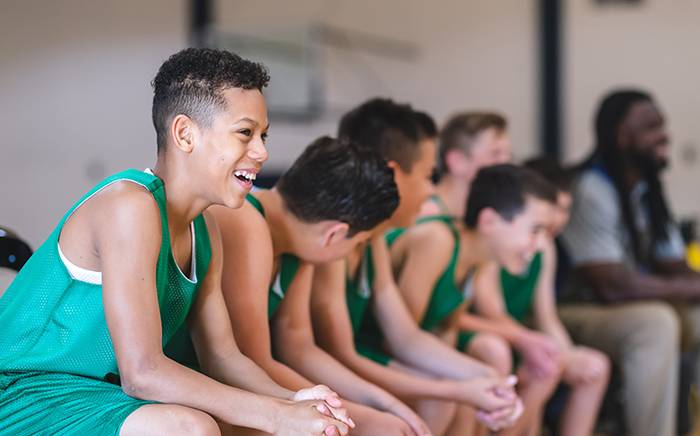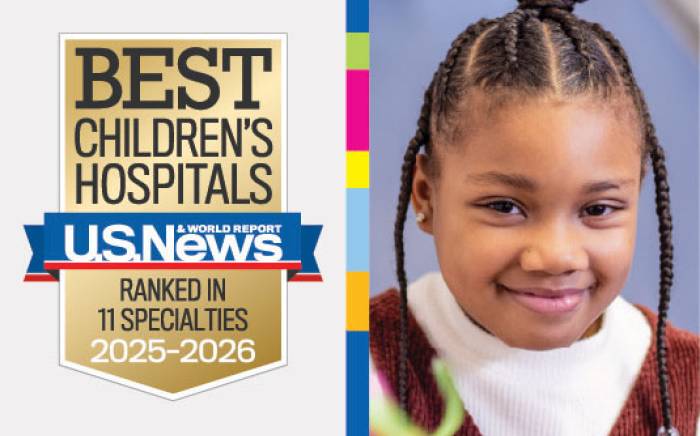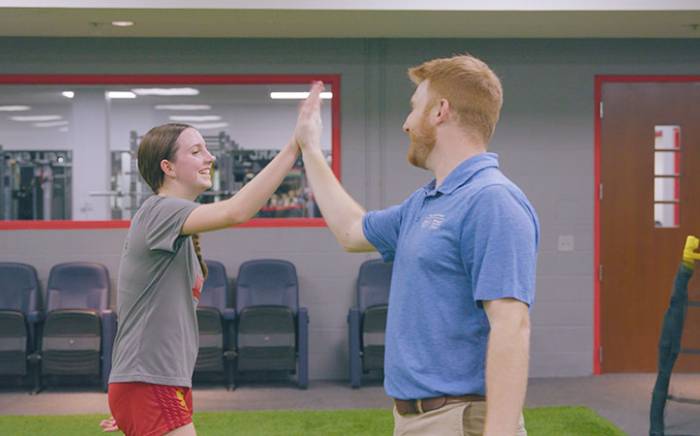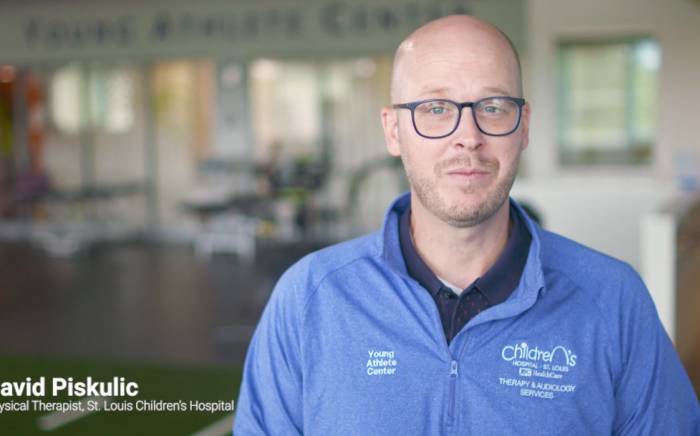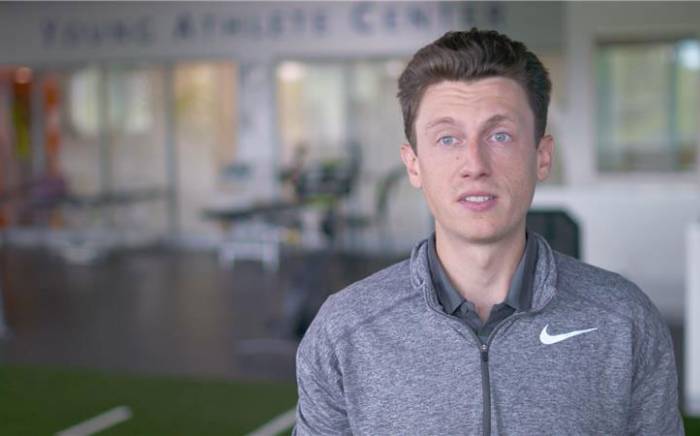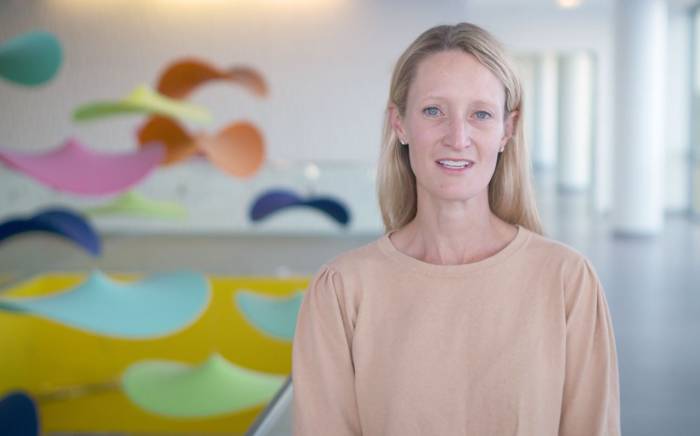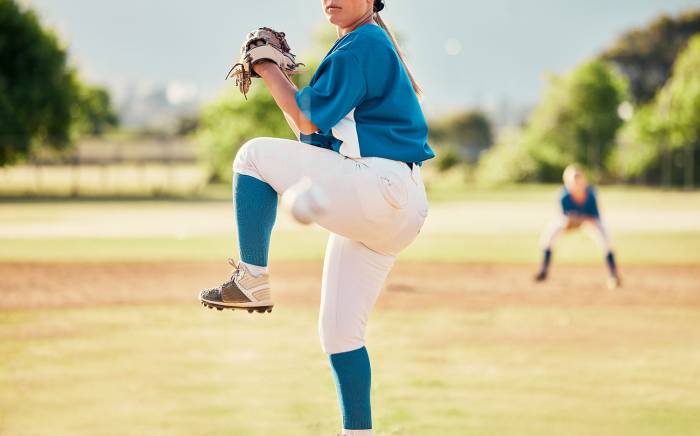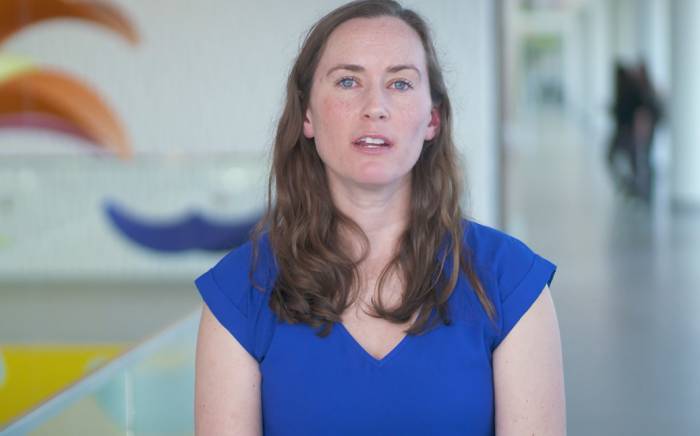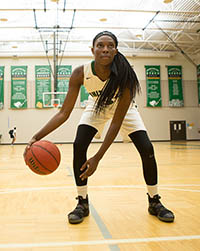 Tajah Foster-Walker has older siblings, and because of that her mom, Tango Walker, describes her as having “grown up in a gym.” At age 5, she took an interest in basketball. Her mom and godfather were coaching a first-grade team, so they added the kindergartener to the roster.
Tajah Foster-Walker has older siblings, and because of that her mom, Tango Walker, describes her as having “grown up in a gym.” At age 5, she took an interest in basketball. Her mom and godfather were coaching a first-grade team, so they added the kindergartener to the roster.
Today Tajah, 16, is a star basketball player. She played at the varsity level during her freshman year in high school; that season she was named a “Newcomer of the Year” in the Suburban Central National Division 2016 All-Conference Girls Basketball.
But Tajah’s athletic talent has come at a cost. In 7th grade at the age of 13, she tore the anterior cruciate ligament (ACL) in her knee. She underwent ACL reconstruction, but complications developed that required two additional surgeries to remove scar tissue blocking complete motion.
Despite a long and difficult recovery, Tajah returned to basketball. Then, in her sophomore year, it happened again. During a game in February 2017, Tajah felt a pop in her knee. She had torn her ACL again.
“The first time, I listened to peers about who they thought was one of the best orthopedic surgeons. For this second injury, I decided Tajah should see a pediatric sports medicine specialist,” says Tango. Washington University orthopedic surgeon Jeffrey Nepple, MD, director of the Washington University and St. Louis Children’s Hospital Young Athlete Center, was consulted.
“Having an ACL tear is hard enough on a young athlete, but Tajah then had a rough road to recovery following her first injury,” says Dr. Nepple. “Our goal was to reconstruct her second ACL tear and make sure Tajah received the complete rehab she needed to help ensure she was fit to play basketball again.”
Dr. Nepple used Tajah’s patellar tendon (the tendon connecting the kneecap to the shin bone) as a graft to replace her damaged ACL. “ACL surgery involves drilling tunnels in the bone to place the new ACL graft into the same position of her original ACL,” he explains. “Since this was a revision surgery after her initial ACL reconstruction, there were more technical challenges in ensuring the graft was positioned correctly and that nothing was compromised based on the previous surgery.”
Following a successful second ACL reconstruction, Tajah began an intense, six-to-nine month physical therapy regimen. The goal was to strengthen her leg, help her regain range of motion in her knee, and work on strengthening her core. Tajah also received re-education on how to properly move on the basketball court, including jumping, landing, cutting and pivoting.
“A reconstructed ACL is as strong and sometimes even stronger than the original anterior cruciate ligament. But some of the risk factors, including movement patterns, that caused the original injury are still present, and for that reason a thorough rehab program is vital after surgery,” says Dr. Nepple.
Preventing reinjuries to the reconstructed ACL remains the focus of the complete rehabilitation process. Recent advances in sports medicine now suggest that many ACL tears cold be avoided through specific dynamic warm-up programs designed to prevent these injuries. Dr. Nepple and the Young Athlete Center team are working to help expand the use of these programs in local high schools and clubs.
“ACL tears most often occur in soccer, football and basketball, where a lot of jumping, cutting and pivoting take place,” explains Dr. Nepple. “These injuries occur in female athletes more frequently than males, so it’s imperative that these young athletes learn techniques to avoid reinjuring their knees—or even better, avoid ever injuring them in the first place. A major injury like an ACL tear has a significant effect on all aspects of a young athlete’s life. The potential to prevent some of these injuries is really exciting.”
College basketball recruiters are showing an interest in Tajah. “They see how she pushes forward even when recovering from an injury—that’s what they want for their teams,” says Tango.
Tajah sometimes dreams about turning pro after she finishes college, but she’s also interested in practicing veterinary medicine at a zoo. For now, with Dr. Nepple’s help, this fall Tajah once again will be giving it her all on the basketball court.


